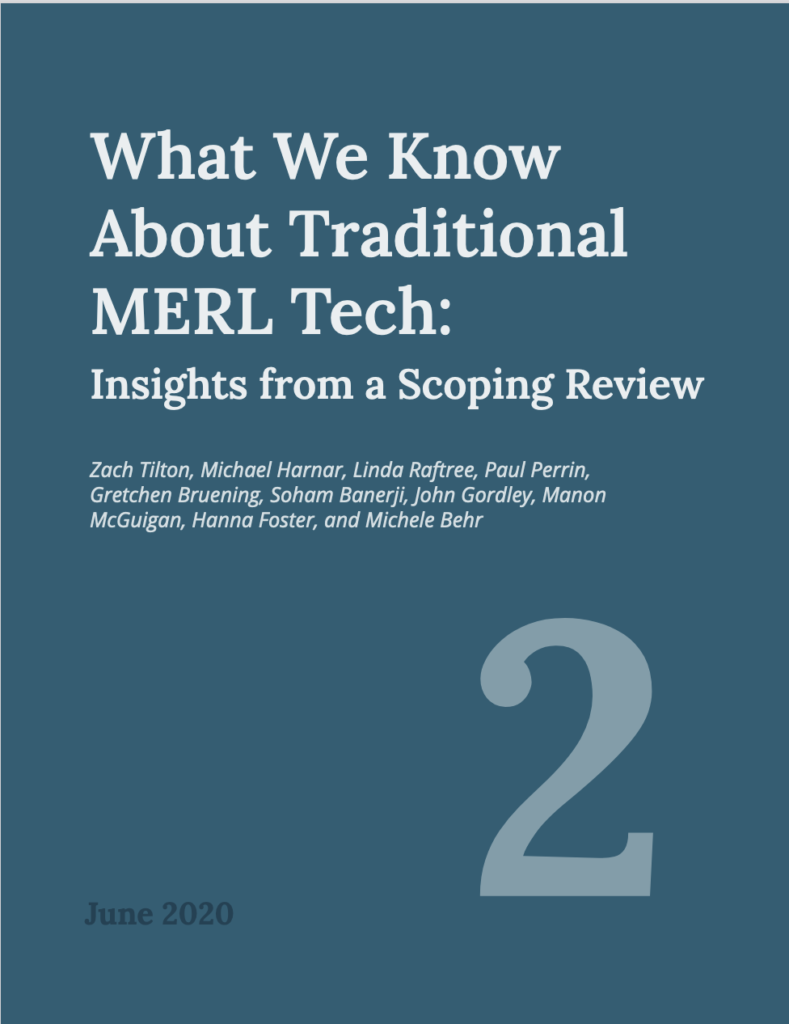What We Know About Traditional MERL Tech: Insights from a Scoping Review
The second paper in the State of the Field series focused on “Tech and Traditional MERL.” The research team conducted a scoping review by searching seven academic databases for studies related to or focused on traditional MERL Tech, identifying and screening nearly 3,400 eligible studies, extracting quantitative data from 886 relevant studies, and synthesizing qualitative data from 256.
The scoping review inclusion criteria were:
- Population: Individuals, households, organizations, communities, and governments in low- to middle-income countries
- Concept: Any combination of 25 “traditional” information communication technology categories that enable any combination of 10 MERL activity categories
- Context: 10 sub-sectors of international development; any study design published in English-language peer-reviewed journals from January 2015 through May 2019
What did we find?
- Most reports of MERL Tech practice describe work in the sub-Saharan Africa or Asia and the South Pacific regions.
- Less than 10 percent of identified studies were experimental.
- Geographic information system (GIS) and quantitative data analysi s software accounted for half of all reported technologies.
- GIS in the environment sector and management information systems in the health sector reflected the largest clusters of MERL Tech evidence.
- Online surveys, GIS, & Quantitative data analysis software were used more to study other phenomena than they were studied; dashboards, mobile tablets, and real-time technology were studied more than they were used to study other phenomena.
Conclusions and recommendations
For every $787 million of official development assistance funded during an equivalent time period, this review identified one peer-reviewed study published in English reporting use of MERL Tech, suggesting the formal, scholarly, indexed evidence base of peer-reviewed studies significantly under-represents the universe of learning and evidence about MERL Tech. We recommend that future knowledge synthesis of traditional MERL Tech should include, if not focus solely on, non-indexed, secondary source grey literature.
Read the full paper here.
You might also like
-
What’s happening with GenAI Ethics and Governance?
-
Join the AI and African Evaluation Working Group Meet ‘n’ Mix Session on May 7!
-
Hands on with GenAI: predictions and observations from The MERL Tech Initiative and Oxford Policy Management’s ICT4D Training Day
-
When Might We Use AI for Evaluation Purposes? A discussion with New Directions for Evaluation (NDE) authors
